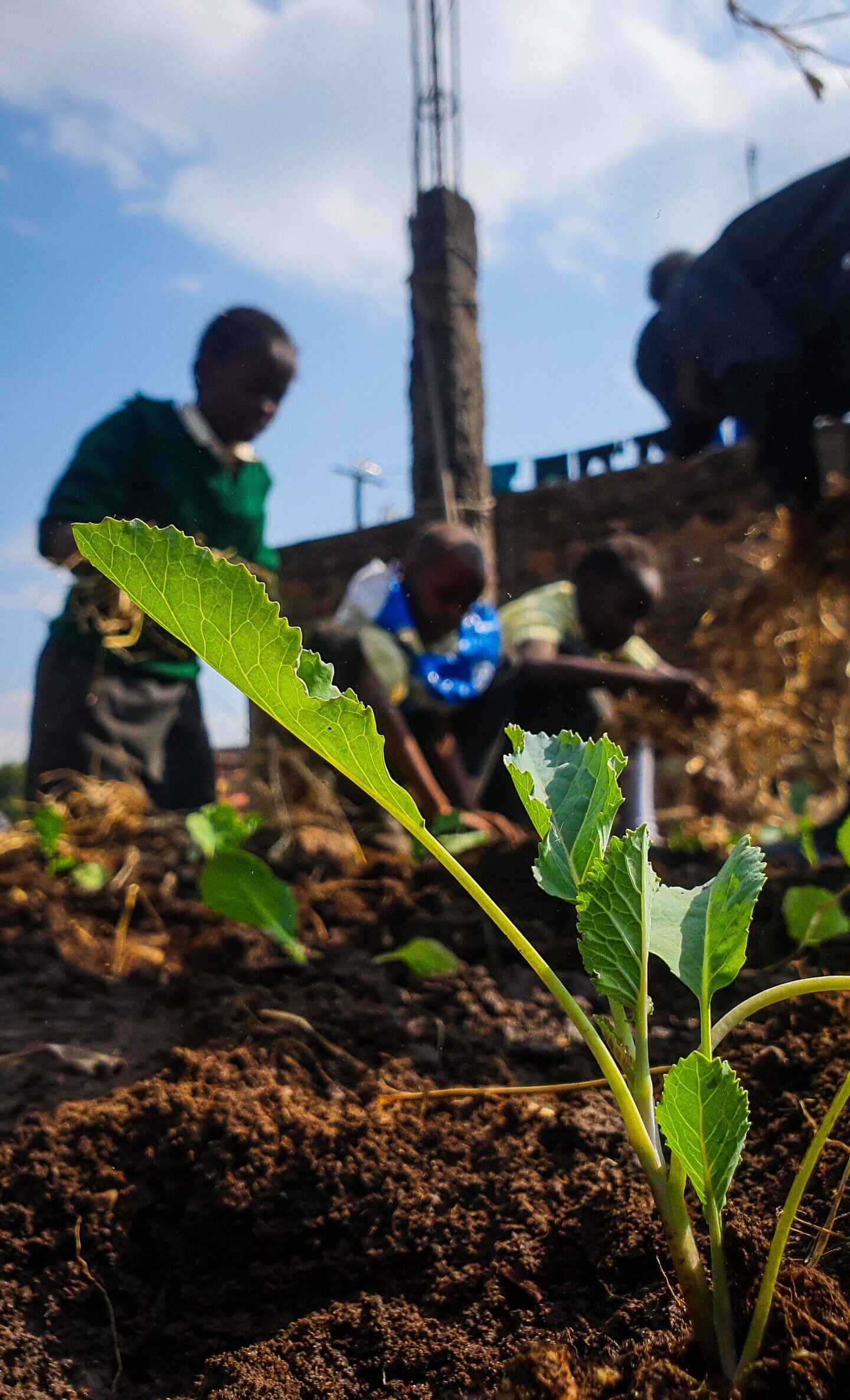Hunger is one of the main reasons why children in Kenya struggle to stay in school. While 418 million children around the world receive school meals, only 18% of children in low-income countries receive this support. In Kenya, about 1 in 5 young children are stunted due to poor nutrition (KDHS 2022).
In the community schools we partner with, many children arrive in class on empty stomachs. For some, the only meal they can count on each day is the one provided through our school feeding program. Hunger doesn’t just cause fatigue — it robs children of the ability to concentrate, learn, and dream big.
A growing solution
Our students are stepping up with solutions of their own. This holiday, these brilliant students at one of our partner schools replanted sukuma wiki (kale) and spinach in their school garden. With the guidance of teachers and support from EducAfrica, they rolled up their sleeves, dug into the soil, and planted seedlings that will soon provide fresh, healthy vegetables for their meals.
What might look like a simple garden is, in reality, a classroom of life skills and leadership. It’s a space where children learn responsibility, teamwork, and the power of growing something with their own hands. And most importantly, it strengthens the feeding program that keeps them focused and motivated in school. Evidence shows that consistent nutrition transforms learning and school meals boost learners’ attendance, retention, and performance.
Beyond meals: growing leaders
Through this student-led garden project, we’re seeing a glimpse of what’s possible when children are given the tools to thrive. Children not only benefit from education but actively shape solutions for their communities. At EducAfrica Foundation, we believe that no child has to choose between hunger and education.


